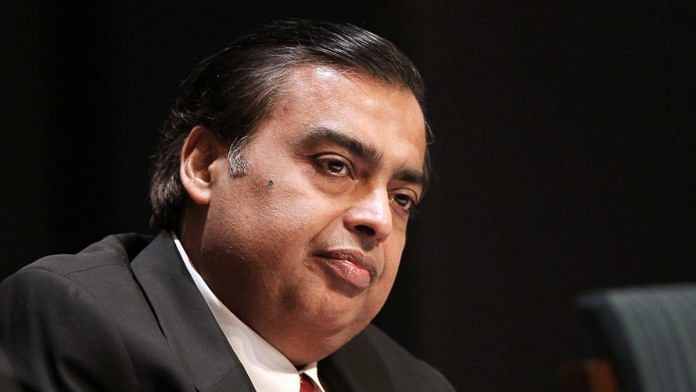Singapore/New Delhi: It’s not typical of Mukesh Ambani, Asia’s richest tycoon, to announce a deal before signing a document.
But that’s exactly what he did last year when he told a packed hall of shareholders that Saudi Aramco, the world’s biggest oil producer, was set to buy a 20% stake in Reliance Industries Ltd.’s refining and petrochemicals business, valuing it at $75 billion. So it may have come as a shock to some of those investors when Ambani said on Wednesday that a deal hadn’t been worked out yet with the delay partly down to the coronavirus.
With oil prices around a third lower than a year ago, a typical Asian complex refinery is losing money on every barrel it processes, compared with earnings of almost $7 a barrel last year. The International Energy Agency estimates global oil consumption will slump by 7.9 million barrels a day, or about 8%, in 2020, a big change from the 1.2 million barrels a day of growth it was predicting at the start of the year.
“While the partnership is undoubtedly a prolific one, one could easily imagine the road to fruition is not an easy one,” said Sri Paravaikkarasu, head of Asia oil at industry consultant FGE. “With Covid-19 sending the oil market into a tailspin, Aramco’s earlier strategies will be re-evaluated.”
There’s also another reason for the delay in the deal that was originally expected to close by March: Ambani doesn’t need Aramco’s money as desperately as he did a year ago, something that he didn’t shy away from mentioning to his investors.
“Our equity requirements have already been met,” Ambani said. The Aramco “deal has not progressed as per the original timeline” due to “unforeseen circumstances in the energy market and the Covid-19 situation,” he said.
Reliance has amassed almost $30 billion in recent months through investments in its digital unit and by selling shares to existing stakeholders, easing the pressure to raise cash to meet its goal of becoming net debt free by 2021. Ambani has already declared his flagship company free of net debt without relying on Aramco.
Even before the virus sent oil prices into a tailspin, differences over valuations and structure early in the talks had slowed progress. The Indian government also threw a spanner in the works after it asked a court to stop the proposed sale, in an attempt to force Reliance to pay arbitration claims in an unrelated case. While oil demand in India is recovering after dropping to the lowest level in more than a decade in April, it’s still about 10% below pre-pandemic levels.
“We believe a deal is still possible although at a lower valuation closer to our estimate of $57 billion gross,” analysts at Sanford C. Bernstein & Co. including Neil Beveridge, wrote in a note.
Ambani, meanwhile, plans to create a separate business unit for his refining and petrochemicals operations. Reliance will approach India’s National Company Law Tribunal to spin off the oil-to-chemicals division, and expects to complete the process by early 2021. The firm has been approached by global companies for strategic partnerships in its petrochemical business, he said without divulging any names.
“Nevertheless, we at Reliance value our over two-decade long relationship with Saudi Aramco and are committed to a long-term partnership,” Ambani said, leaving the door open for a potential transaction.
The deal is crucial for Aramco, formally called Saudi Arabian Oil Co., as well. Iraq has replaced Saudi Arabia as India’s top supplier of crude and its lead has been widening.
“It does make more economic sense to integrate an existing refinery fully with petrochemicals and Aramco will continue pursuing the opportunity with Reliance,” Paravaikkarasu said. “More roadblocks can be expected along the way, even if Covid-19 leaves us.” –Bloomberg
Also read: Why Reliance investors weren’t impressed despite Mukesh Ambani’s deal-making spree



